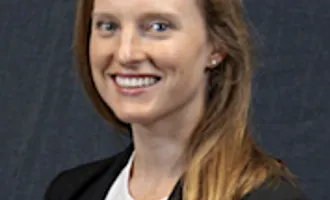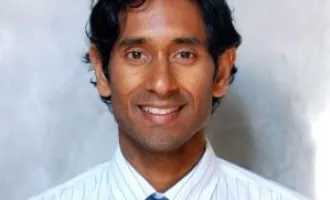
The Mosaic
The Mosaic is a piece of writing I did to process the death of our classmate, Colin Alexander, earlier this school year. It’s how I said goodbye to him, and one of the first times I paused to process the culture of med school after classes started.
I imagined the night we were notified of our classmate’s death at least a decade before it happened. I always knew I would be a physician, and often when I would share my career aspirations with peers as a child, they would recoil at even the idea of being woken up in the middle of the night to tend to patients. I pretended to believe such interruptions to be a necessary evil of the future I so desired.
Even at the tender age of 8 or 9, I had picked up on the social cue that it was unbecoming to express complete exuberance about one’s career. However, in the quiet of my own mind and heart, I have always believe that it would be an absolute pleasure and honor to be the person called in the middle of the night to save a life. I imagined being woken from slumber, my faculties foggy only for a moment as I answered the midnight phone call. My patient needed me desperately.
Of course, I would leave for the hospital immediately. I imagined myself donning scrubs and my stethoscope quickly, kissing my sleeping family goodbye, and quietly departing for the hospital. Perhaps I would leave a note on the kitchen counter: “Was needed at the hospital! Love you!”
Never in my romanticized imaginings did I sleep through the midnight phone call, but that is what happened in reality. This was the first omen that this milestone of my medical career – the first midnight phone call – would not go as I had foreseen. I slept through the dozen calls I received from my classmates in the hour after Colin’s death was publicized to the class.
When I did wake at 3 a.m. and glance at my phone, I immediately knew something was wrong. The telltale signs of missed phone calls and ominous “have you heard the news?” texts were all there glowing quietly at me in the complete darkness of by bedroom.
The email in my inbox only confirmed what I already knew to be true: tragedy had struck UCSF. One of my fellow classmates had died.
It is exceedingly difficult to express the ways in which the stresses of life manifest peculiarly in medical school. Life in general can be hard. Life in medical school is hard, and also distorted. Normal ravages present with atypical manifestation. A classmate who takes to studying with newfound devotion of unknown etiology could simply have found new inspiration, or be burying depression under work.
The sadness inherent in devoting one’s life to standing at the razor edge of life and death can be transient and ultimately illuminating, or it can take root in the mind and metastasize to the heart and soul.
We are often exhausted, elated, terrified, and overwhelmed all in the same moment. And yet in the midst of all this, our conversations can become stenotic, narrowing to the scope of what we can manage to express in words.
In a community as close and caring as UCSF School of Medicine, my peers and I have adapted to this precarious environment by caring for each other as a doctor does a patient.
Only several weeks into medical school we are paradoxically already all attendings on the medical student ward of Moffitt hospital. Each of us is a patient on the service of our classmates. We are each simultaneously attending and patient.
Thus, the news of Colin’s death represents the milestone I imagined years ago: the first midnight phone call regarding one of my patients. However, there was no room for a stealthy hero’s exit into the night to beat back the specter of death. The time for that had passed.
Instead, we must now visit our mosaics. At any given point in time, every physician is a mosaic of all the patients they have cared for up until that moment. This mosaic is our greatest asset in our work.
Every new patient adds color, depth, and breadth to the mosaic, evolving our understanding of what it means to devote our lives to meeting people at the aching center of their humanity.
The mosaic does not live in the foyer of our minds. Some things are too beautiful to be viewed routinely. Rather, the mosaic lives in the recesses, accessed mostly by our subconscious. Only rarely, on occasions in which we must add to this internal mural, do we consciously seek it out.
It is with trembling hands that I approach my own mosaic, and add Colin’s contribution. For me, Colin is a piece of hunter green sea glass. Small, because we had so little time together. It’s incredibly smooth to the touch, made so by kindness and wisdom uncharacteristic of someone so young.
The dark green is a striking addition. It surprises my eyes as they rove the mosaic in search of some larger, predictable pattern. Of course, no pattern materializes. It’s far too soon for that.
Intellectually, I know that oblong, hunter green piece of sea glass has been added, but I expect that seeing it there will still stun me painfully for some time.
Many in my class are experiencing true grief at the idea that Colin will never practice medicine and see patients with us. As was the case when I was 8 or 9, I find myself again in the odd position where social cues dictate that I act in a way that juxtaposes my true sentiments.
I nod in agreement with their comments, and truly sympathize with their pain. And yet – just between us – I’ll say that I know that Colin will see patients. As a piece in each of our mosaics, he will be an invaluable part of every patient visit each one of us has over the course of our careers.
Colin, I look forward to continuing our work together.
Until then,
Shakkaura



